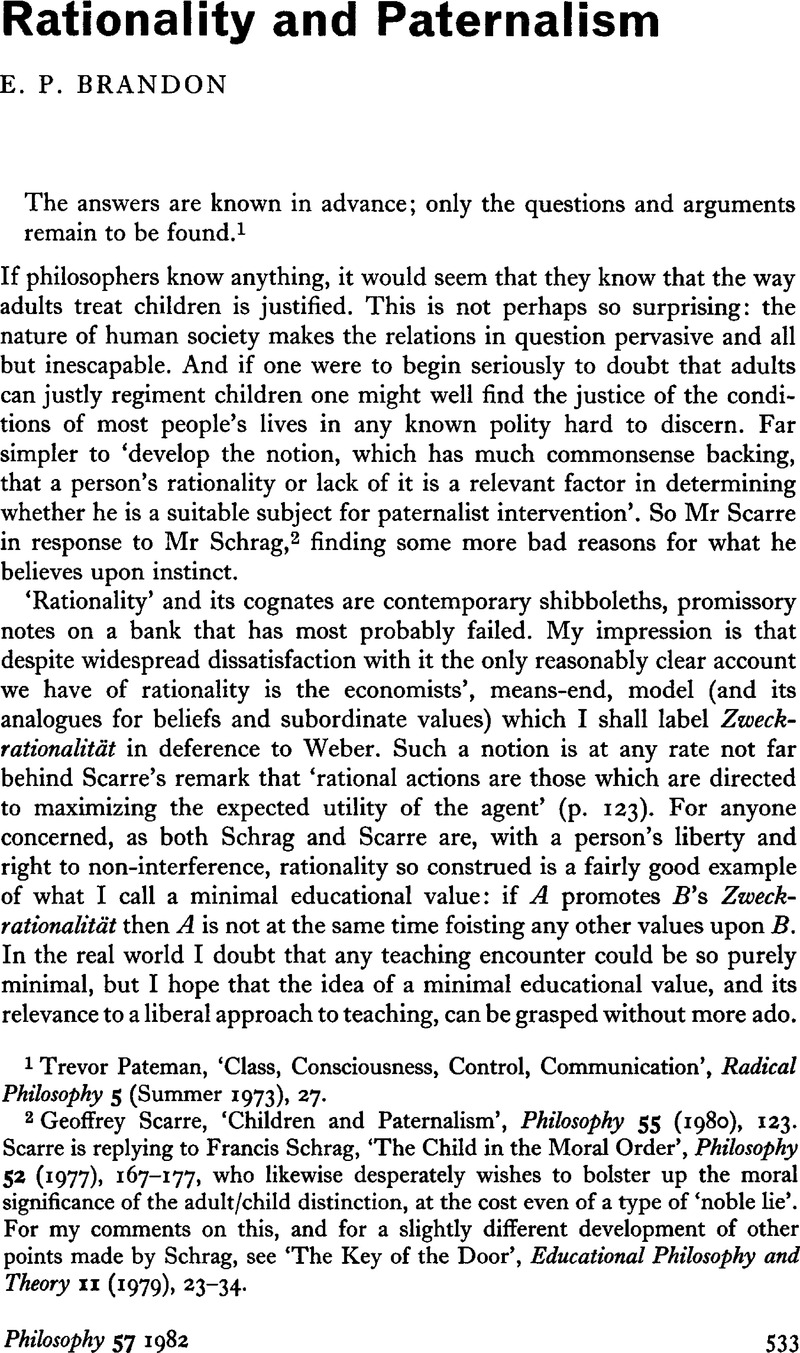Article contents
Rationality and Paternalism
Published online by Cambridge University Press: 30 January 2009
Abstract

- Type
- Discussion
- Information
- Copyright
- Copyright © The Royal Institute of Philosophy 1982
References
1 Trevor Pat ‘Class, Consciousness, Control, Communication’, Radical Philosophy 5 (Summer 1973), 27.
2 Geoffrey Scarre, ‘Children and Paternalism’, Philosophy 55 (1980), 123. Scarre is replying to Francis Schrag, ‘The Child in the Moral Order’, Philosophy 52 (1977), 167–177, who likewise desperately wishes to bolster up the moral significance of the adult/child distinction, at the cost even of a type of ‘noble lie’. For my comments on this, and for a slightly different development of other points made by Schrag, see ‘The Key of the Door’, Educational Philosophy and Theory 11 (1979), 23–34.
3 Scarre's phrase ‘when their irrationality threatens their well-being’ (p. 124) is crucially ambiguous between unproblematic cases of legitimate interference where ignorance or insouciance is going to lead to unforeseen and definitely unwanted disaster and cases where the person interfering decides for himself what is to count as well-being. Scarre needs a justification for a general regimentation such as, it seems, the justification of the former type of interference will never yield.
4 I have attempted to say a little about this conception of morality in the article cited above and to argue for its consonance with Mackie's version of subjectivism in 'Subjectivism and Seriousness’, Philosophical Quarterly 30 (1980), 97–107.
5 J. Z. Young, ‘The Pineal Gland’, Philosophy 48 (1973), 72.
6 Pierre Bourdieu and Jean-Claude Passeron, Reproduction in Education, Society and Culture, translated by Richard Nice (London: Sage Publications,1977)
- 2
- Cited by


